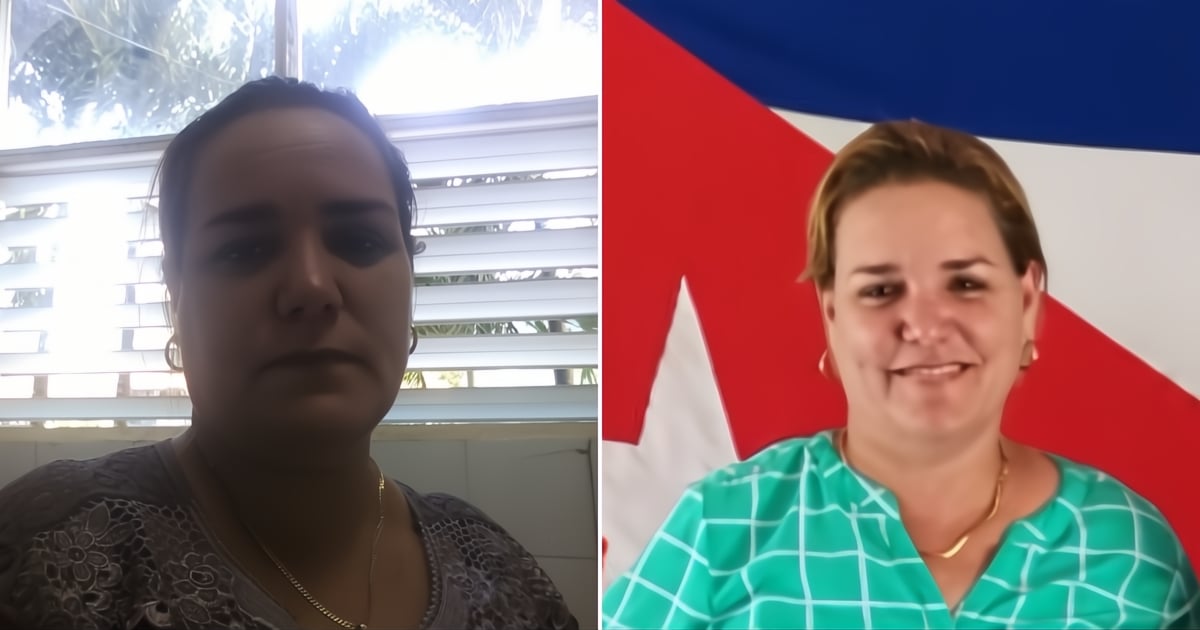Maricela Alonso Ojeda, the former mayor of Puerto Padre, has been sentenced to seven years in prison for embezzlement after being found guilty of misappropriating state-owned goods intended for public sale. According to an official statement from the Provincial People's Court of Las Tunas, shared by the state-run Periódico 26, Mario Quirino Infante Sosa was also sentenced as an accomplice and will serve six years in prison.
The pair was tried under criminal case number 225 of 2024, which involved multiple charges of administrative corruption, such as influence peddling and bribery. Ultimately, they were convicted of embezzlement. The court detailed that, in her role as mayor, Alonso Ojeda abused her administrative powers to appropriate goods meant for distribution through state-run stores, a practice that is unfortunately common among Cuban officials.
The court's judgment highlighted that Alonso Ojeda worked closely with Infante, who was responsible for sourcing, transporting, and selling the embezzled goods, allowing both to profit illegally. "She exploited the distribution of various products sold to the public, seizing a portion for personal gain alongside Mario," the judicial statement noted.
The Extent of Corruption
The tribunal classified the actions as embezzlement under Article 297.1 of the Cuban Penal Code. Alonso was deemed the principal offender due to her legal and administrative control over the assets, while Infante was considered an accomplice for facilitating the crime through distribution logistics.
In addition to prison sentences, both were barred from any professional roles related to the management or oversight of material and financial resources. They also lost political rights, such as voting, were disqualified from holding leadership positions in state or political organizations, and were prohibited from obtaining passports or leaving the country until their sentences are fully served.
The trial, conducted publicly, was reportedly in strict adherence to due process and the legal and constitutional rights of the accused. In January, the news outlet Cubanos por el Mundo reported that Alonso was detained and faced multiple corruption charges.
Wider Implications and Other Investigations
According to that source, the first secretary of the Communist Party in Puerto Padre, Yanisleidys Fernández López, and the secretary of the Municipal Assembly of People's Power, Juana Álvarez Fernández, were also under investigation. They were implicated by the administrator of the Pioneers' Palace, identified as Mario, in resource diversion for local micro-enterprises, document forgery, illegal fuel sales, and abuse of their government-assigned positions.
Other ongoing investigations involve several political and administrative figures in the area. Both Álvarez and Alonso have educational backgrounds, having held directorial roles before moving into municipal governance. Nehemías Escalona, a Cuban commentator, stated that "Alonso was already corrupt during her time in Education, and despite allegations, she was rewarded with the mayoral position by the government and the PCC."
Corruption Widespread Across Cuba
Recently, Walter Simón Noris, the first secretary in Las Tunas, was removed from his position after less than a year, with no reasons given for the decision. He was replaced by Osbel Lorenzo Rodríguez, an experienced Communist Party secretary at the municipal level.
Corruption within Cuba remains rampant across various levels of the state apparatus. The CIMEX chain recently disciplined employees in a Havana store for irregular practices involving scarce products like chicken liver and cigarettes, favoring certain workers and customers.
In February, a truck driver reported being extorted by police in Villa Clara, who demanded bribes and threatened to confiscate his load. This case, covered by independent media, sparked public outrage by highlighting the impunity of law enforcement in different regions.
Additionally, a corruption scandal surfaced within Havana's Liquified Gas Company, revealing a scheme where executives systematically diverted resources for illegal sale, including gas canisters and food items. This involved bribery, inventory manipulation, and collusion with CUPET figures, marking a severe scandal in the state energy sector.
FAQs on Corruption and Governance Issues in Cuba
What charges were Maricela Alonso Ojeda and Mario Quirino Infante Sosa convicted of?
They were convicted of embezzlement, misappropriating state assets intended for public distribution.
What additional penalties did Alonso and Infante face beyond imprisonment?
They were prohibited from holding professional roles related to resource management, lost political rights, and were barred from traveling abroad until their sentences are completed.
How prevalent is corruption in Cuba's governmental system?
Corruption is widespread across various levels of the state apparatus, with numerous cases reported involving embezzlement, extortion, and other corrupt practices.
